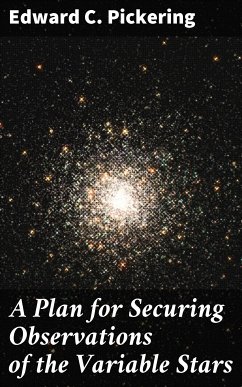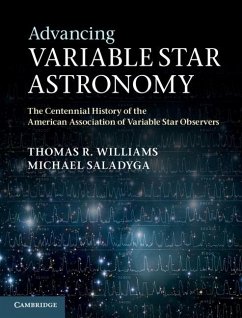
A Plan for Securing Observations of the Variable Stars (eBook, ePUB)
Sofort per Download lieferbar
0,49 €
inkl. MwSt.

PAYBACK Punkte
0 °P sammeln!
In "A Plan for Securing Observations of the Variable Stars," Edward C. Pickering, a pivotal figure in American astronomy, meticulously outlines an innovative strategy for the systematic observation of variable stars. This seminal work is characterized by its empirical rigor and clarity, reflecting the burgeoning scientific inquiries of the late 19th century. Pickering's text articulates the essential methodologies of astronomical observation, emphasizing both the need for precision and the significance of variable stars in understanding stellar evolution. The work is set against the backdrop o...
In "A Plan for Securing Observations of the Variable Stars," Edward C. Pickering, a pivotal figure in American astronomy, meticulously outlines an innovative strategy for the systematic observation of variable stars. This seminal work is characterized by its empirical rigor and clarity, reflecting the burgeoning scientific inquiries of the late 19th century. Pickering's text articulates the essential methodologies of astronomical observation, emphasizing both the need for precision and the significance of variable stars in understanding stellar evolution. The work is set against the backdrop of an era marked by rapid advancements in celestial photography and the reorganization of astronomical societies.
Dieser Download kann aus rechtlichen Gründen nur mit Rechnungsadresse in A, B, BG, CY, CZ, D, DK, EW, E, FIN, F, GR, H, IRL, I, LT, L, LR, M, NL, PL, P, R, S, SLO, SK ausgeliefert werden.













